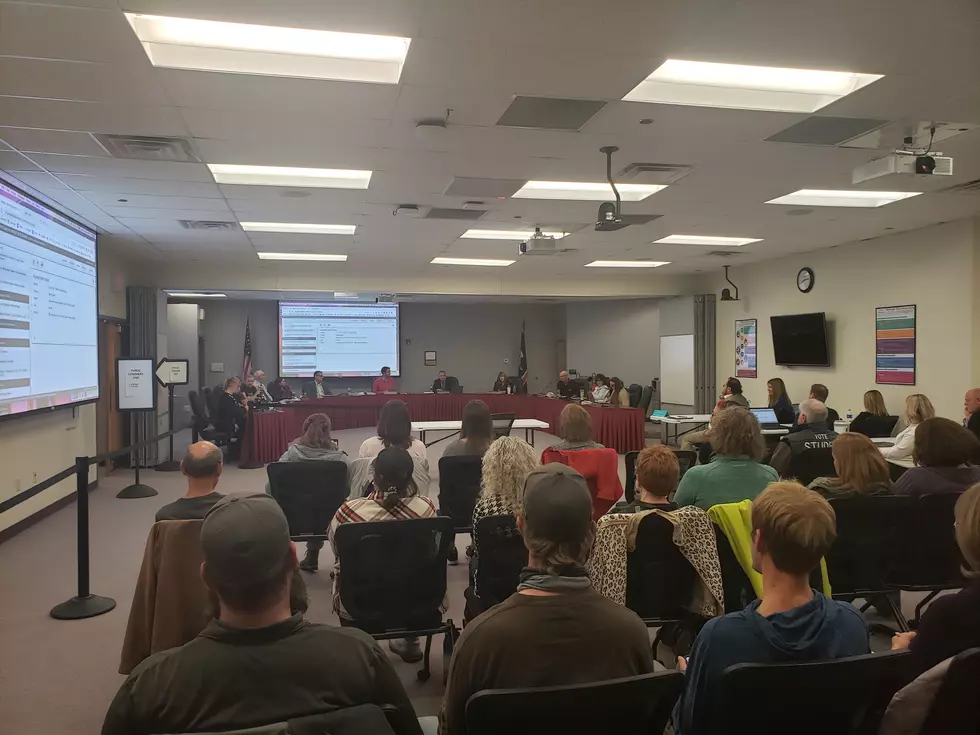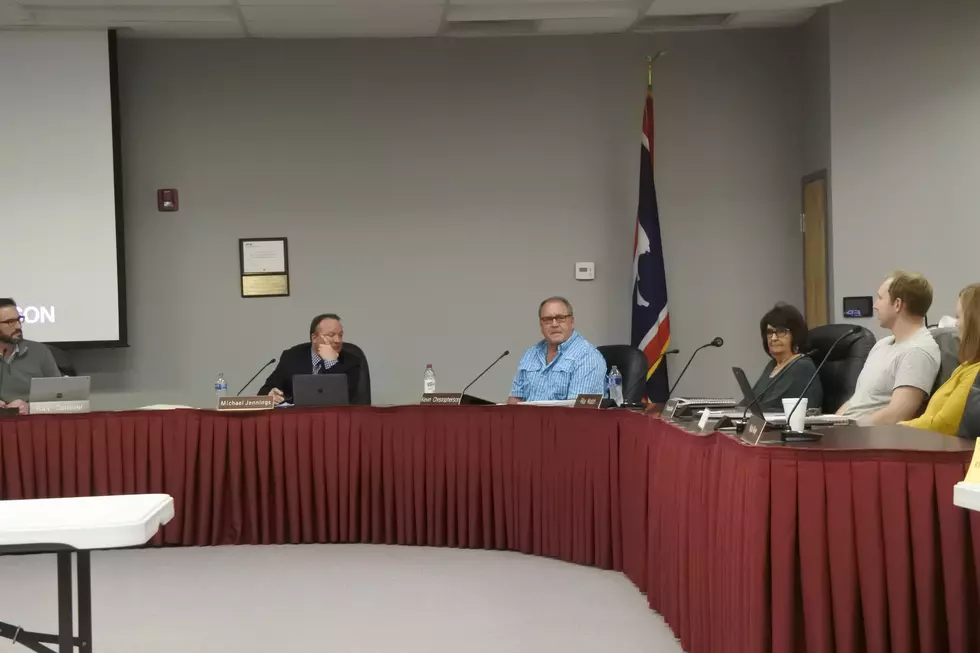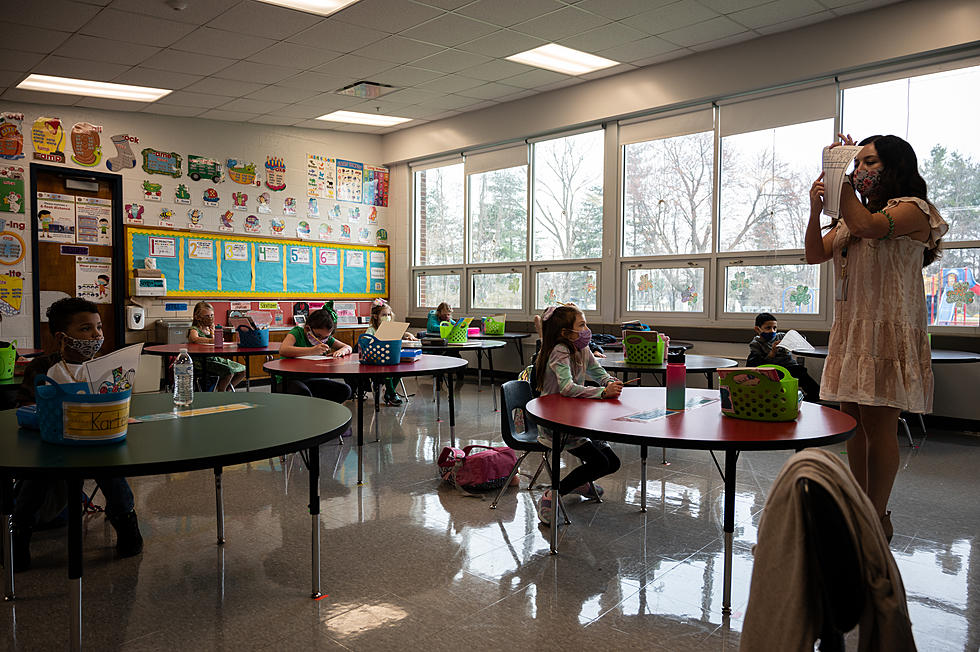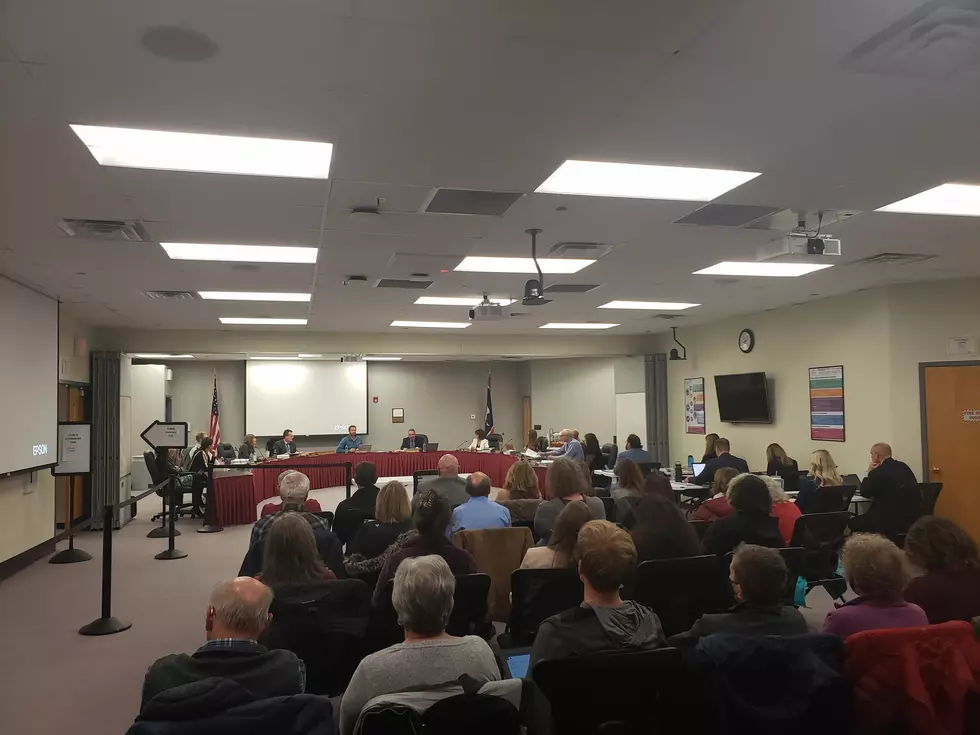
Natrona School Board Gets Closer to Reaching Decision on Book Bannings
At the Natrona County School District (NCSD) board meeting on Monday, 16 people came up to speak about the decision by the reconsideration committee to keep two books in the Kelly Walsh library.

This is one of several school board meetings dominated by the issue of the books, Gender Queer and Trans Bodies Trans Selves, where the majority of the meeting is taken up by the public comment period where groups for and against the books come up to state their case.
While usually, there's a disproportionate amount of people on one side, as was the case in the past two school board meetings, this time there was a more even mix, with nine people speaking against the books and seven speaking in favor of them.
Before the meeting began, Chair Raymond Catellier said that people who provide public comment don't disparage any speakers, as was the case at the previous meeting, and that anyone who does will be asked to stop speaking.
While at the last meeting one of the people providing public comment called another commenter a pedophile and a groomer and was asked to stop speaking, no such incident occurred at the meeting on Monday.
In both groups, there were people at this meeting that have come up many times to state their case, with several members of Moms for Liberty coming to say why the books are pornography and shouldn't be in schools.
There were also some students and parents who had spoken before and reiterated how important the books are for people in the LGBTQ community, with one student, coming to the meeting with both books in their possession.
Unique in this meeting was that Jeanette Ward, the Republican nominee for House District 57 and Megan Degenfelder, the Republican nominee for the state Superintendent of Public Instruction, both showed up to speak against the books but in favor of local control.
Degenfelder said that she wants school boards to control which books are available in their libraries, but thinks that there should be some updates to the rules that govern how books are made available in schools.
"If elected, I want to launch an education and transparency website, where we're not doing that on the backs or workload of teachers," Degenfelder said. "But at the state level, we work with districts to show maximum transparency so that we can engage in these conversations and decide which books, which material, which curriculum are appropriate for our communities because I think our forefathers, they knew our local communities know what is the best way to teach the standards."
Degenfelder said when asked if she would be in favor of doing something about books like Gender Queer that she believes it's a local decision and it would up to the court to define what the state can do.
"The constitution determines that that's a local decision, so I think that's really important. It says textbooks are not to be prescribed at the state level. [Library books] is where it gets difficult and it's how the court might define that."
At the end of the meeting, trustees talked about what their next steps are and, while they didn't explicitly state their opinion, gave greater clarity on what they plan to do.
Trustee Rita Walsh said she believes they will have a public vote on the books, after getting an appeal to the reconsideration committee's decision on Oct. 20, by the end of November.
Tanya Southerland, the director of public relations with the NCSD, said that while she doesn't know yet if the books will be discussed in a works session or a general meeting, she does know it will be held publically.
Trustee Dave Applegate said that he appreciates the comments made from both sides.
"The comments from [the LGBTQ] community and its supporters have been thoughtful and respectful. It takes bravery for these students to provide public comment to this board," Applegate said. "I want to emphasize to them that this board sees their humanity. Your humanity is our common ground and differences in personal identity don't influence how I see you as a fellow human being. The LGBTQ community has historical, and it still occurs today, been stigmatized, marginalized, bullied, and harmed, and I heard your emotions when you expressed your thoughts regarding these books...I also appreciate the thoughtful comments from parents expressing their concerns about their children being exposed to sexually explicit images and content at the high school libraries. Parents have a right to know what their children learn in school, and they have a fundamental right to limit or prevent their children from being exposed to mature subject matter that they believe may not be appropriate for their children."
Applegate said that while they will have a robust discussion on the books, he thinks that looking to something like the comic used by DC Comics, would be a good framework to look at for how to improve district policy.
Several other trustees said they agree with the comments made by Applegate, and Vice Chair Clark Jensen said that he's not going to share his thoughts on the books now, but said he has read Gender Queer and "dabbled" with Trans Bodies Trans Selves.
Breathtaking Fall Sunsets From Across Wyoming
Answers to 25 common COVID-19 vaccine questions
More From K2 Radio









